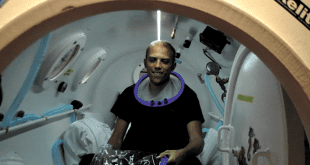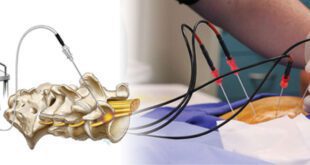By Parveen Vahora, M.D.
Pelvic pain can occur from a variety of causes, such as endometriosis, interstitial cystitis, vulvodynia, or vulvovaginal atrophy. Many women experience painful intimacy associated with pelvic pain, which can be related to the conditions mentioned above, as well as a multitude of others. Each of these disorders can be treated with multiple therapeutic or surgical options; however, a proper and accurate diagnosis is the key to getting patients out of pain and back to enjoying their lives.
Through Dr. Vahora’s broad scope of treatment options, such as laparoscopy, which allows her to visualize the entire abdomen and pelvis without making a large incision on the patient’s abdomen, and noninvasive, conservative options, such as medications or the highly-regarded MonaLisa Touch procedure, Dr. Vahora is able to help her patients find relief quickly and effectively.
Pelvic Endometriosis
Endometriosis is a painful condition that affects numerous women. It’s caused by the abnormal growth of the endometrium (tissue that lines the uterus) outside of the uterus into the ovaries, fallopian tubes, and the pelvic region.
Treatment
Medications that block estrogen or progesterone are often prescribed. Drugs that stop menstruation and birth control pills may also be required to address endometriosis. A new drug ORILISSA—made for moderate to severe endometriosis pain is the first FDA-approved oral pill specifically developed for women with moderate to severe endometriosis pain in over a decade.
Surgery
Minimally invasive surgery to remove the endometrium growth can be performed by your physician via laparoscopic surgery. This conservative approach allows the doctor to see exactly where the endometrium is and enables them to remove it safely. More advanced or open surgery may be necessary in some cases.
Vulvar & Vaginal Atrophy
Many women have vaginal disorders, like burning, dryness and pain. Due to the limited estrogen supply and dryness due to other medical conditions, the walls of the vagina start to thin out, causing dryness, and inflammation. The opening of the vagina is the vulva, and dryness of the vulva can cause pain at the onset of intimacy; intercourse can be very painful and cause urinary symptoms and pain. It can also interfere with daily activities for many women due to the extreme pain and discomfort that it can cause. Women with atrophy can have increased discharge and or urinary tract infections. Atrophy may also worsen symptoms of problems and incontinence.
Treatment
Options generally include observation, medical therapy (including nonhormonal or hormonal options), procedures and or surgery. Depending on our gynecological problems, Dr. Vahora & Connie Moler APRN will evaluate you and determine what the best treatment plan is for you specifically
There are many options for women, like creams, medications, and surgery, but they all pale in comparison to an innovative procedure that is not hormonal, has no side effects, and only takes a few minutes to perform right in the convenience of the office. This advanced technology is called the MonaLisa Touch®, and it’s helped countless women treat their vulvovaginal atrophy and associated symptoms and pain. MonaLisa Touch® helps women get their confidence and sexual health back to how it was when they were younger.
Many women are unable to take hormone replacement due to a cancer risk or other medical conditions. For those women taking hormones may put them at risk for future cancer or a stroke or a blood clot or a heart attack. This is especially true for those who have undergone breast cancer treatment or have breast cancer or other hereditary cancers that are related to the BRCA genes. Ask your healthcare provider about all the treatment options that are safe and available for you.
MonaLisa Touch®
This is an innovative laser therapy, and there are no medications, no cutting, and no lengthy healing times with this procedure. It’s similar to having a Pap smear test done. The laser does not hurt or cause any pain. You will only feel tiny vibrating sensations from the machine, and the best part is that the entire procedure is accomplished in an outpatient, office setting.
The laser assists with the body’s cell renewal and regenerates the mucous membrane, which helps with the restoration of collagen and renewing the proper trophic balance to the membrane. MonaLisa Touch® is a functional vaginal rejuvenation treatment based on a unique fractional CO2 laser. This device was created specifically for the vulvovaginal mucosa and is presently the most effective procedure for preventing and treating vaginal atrophy and its painful conditions.
With this treatment, women no longer have symptoms of dryness, pain, itching, or irritation. Women are able to enjoy intimacy once again. The MonaLisa Touch treatment also helps urinary symptoms such as incontinence and urgency.
MonaLisa Touch® Can Help Multiple Conditions
MonaLisa Touch® can treat and help women of all ages. Any woman that has pain with intercourse, dryness, pelvic muscle laxity, or hormonal imbalance and one of the various stages of menopause can benefit from this procedure. It can help women who have pain due to Interstitial cystitis, and or vulvodynia and even prolapse and incontinence. MonaLisa Touch® is remarkably effective at restoring and regenerating the vulvovaginal tissues.
Other Treatment Options
As women are all different, so are the best treatment options to suit them personally. That’s why Dr. Vahora custom-tailors a plan that’s right for each patient. Medications and hormone balancing drugs (both bioidentical and synthetic) are often prescribed for specific conditions. However, in many cases, depending on the severity of the disorder, surgery might be necessary Dr. Vahora specializes in robotic-assisted, laparoscopic, minimally-invasive surgery.
What if I need Surgery? A Hysterectomy?
Dr. Vahora says “It is Not Your Grandmother’s Hysterectomy®.” Those who have a minimally invasive procedure typically return to normal activities in a few weeks. WOmen who have minimally invasive surgery have a faster recovery, less pain and less scarring. Traditional hysterectomies require an average hospital stay of five to seven days, and complete recovery may require up to two months. If you are a candidate for a minimally invasive procedure, you could return to your normal life in a much shorter time and experience a less painful recovery. “Not Your Grandmother’s Hysterectomy®,” makes a monumental difference for patients.
Don’t just live with your gynecological problems or sexual discomfort, get the relief and new beginning that you are worthy of. Contact us today to schedule an appointment and/or your Mona Lisa Touch consultation at Info@ParveenVahoraMD.com or during office hours call (727) 376-1536 or use our text line (813) 548 4412.
Parveen Vahora, M.D.
Dr. Vahora specializes in pelvic pain and endometriosis and is passionate about educating fellow physicians and the community on these topics. She is fellowship trained in minimally invasive surgery. Another focus of hers is sexual health and she offers MonaLisa Touch® for patients who have issues from having children, going through menopause, as well as post-menopausal women, cancer survivors, and those suffering from pain during intercourse or intense dryness or incontinence or prolapse.
To find out more, please visit ParveenVahoraMD.com or email info@ParveenVahoraMD.com.
Connie Moler, APRN
Ms. Moler completed her MSN as a Women’s Health Nurse Practitioner at Vanderbilt University. Ms. Moler brings her 20 plus years of experience and joy of caring for women.
 Central Florida Health and Wellness Magazine Health and Wellness Articles of the Villages
Central Florida Health and Wellness Magazine Health and Wellness Articles of the Villages



